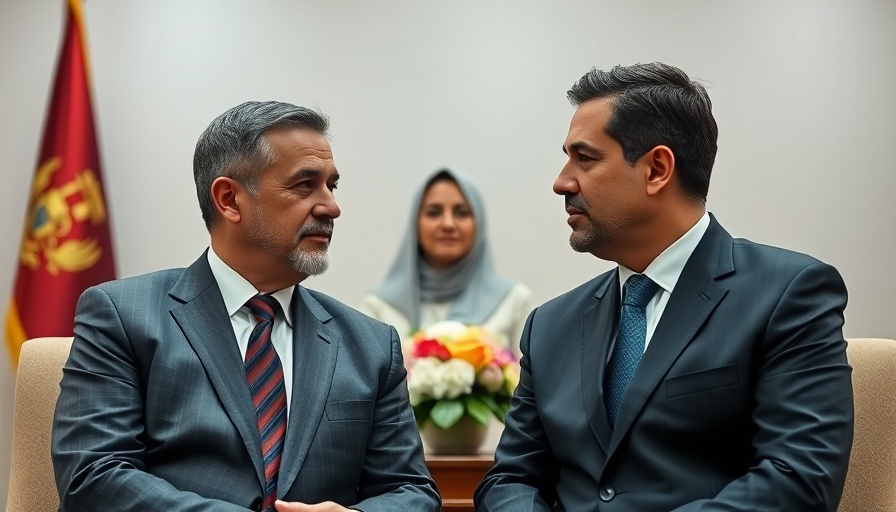
Trump's Unexpected Alliance: A New Dialogue with Iran?
President Donald Trump has recently signaled a willingness to engage with Iran, seeking assistance from Russian President Vladimir Putin to reestablish communication about Tehran's nuclear program. This move came during a phone call in February, where Trump expressed his desire for mediation, indicating a complex geopolitical shuffle aimed at addressing longstanding tensions between the U.S. and Iran.
Political Ramifications: What’s at Stake?
The potential for a new nuclear deal is framed against a backdrop of deteriorating relations between Iran and the U.S. following Trump's withdrawal from the Obama-era nuclear agreement during his first term. The Iranian leadership, particularly Supreme Leader Ayatollah Ali Khamenei, has publicly expressed skepticism about Trump's reliability, asserting that he cannot be trusted. This skepticism is heightened by Iran's wider geopolitical interests and its ongoing conflicts in the region, particularly against U.S. allies like Israel.
Russia's Role: Mediator or Player?
Russia has positioned itself as a mediator, asserting that it is ready to help negotiate between the U.S. and Iran. Kremlin spokesman Dmitry Peskov emphasized that “the United States and Iran should resolve all problems through negotiations.” However, how receptive Iran will be to U.S. overtures mediated by Russia remains uncertain, especially given Iran's hardline factions that oppose diplomacy with the West.
The State of Iran's Nuclear Program
Complicating matters further, reports indicate that Iran's stockpile of near-bomb-grade fissile material has increased significantly since the start of Trump's recent presidency, which could heighten tensions and increase urgency for dialogue. While Tehran insists its nuclear ambitions are peaceful, suspicion remains regarding a military dimension hidden within its civilian nuclear sector.
Domestic Pressures in Iran: The Economic Crisis
While the Iranian leadership faces increasing pressure to engage with the U.S. to alleviate economic hardships exacerbated by sanctions, there are profound internal divisions. Iranian President Masoud Pezeshkian has recognized the importance of dialogue, but ultimately defers to the Supreme Leader's stance against negotiations amid stringent sanctions. This internal conflict illustrates the delicate balance the Iranian administration must maintain as it navigates external pressures while managing its domestic unrest.
Future Predictions: Will Communication Lead to Resolution?
The desire for a renewed dialogue between the U.S. and Iran, as facilitated by Russia, paves the way for numerous possibilities. Associate Professor Nikolay Kozhanov observes that productive communication channels are crucial for any potential resolution, which would require both sides to make significant concessions. Sanctions relief from the U.S. and a commitment from Iran to moderate its regional ambitions appear to be prerequisites for moving forward.
Understanding the Broader Impacts
As these diplomatic negotiations unfold, it’s essential for mission-minded individuals and those engaged in social justice advocacy to understand the potential outcomes of such a dialogue. The ramifications of a new nuclear deal could reverberate beyond policy discussions—impacting millions of lives in the Middle East and influencing interfaith dialogues and humanitarian efforts.
As we observe the complexities of international relations and the interconnected issues of faith and diplomacy, it becomes clear: understanding these dynamics offers significant insight into advocacy and humanitarian efforts aimed at supporting persecuted communities. This is a pivotal moment where engaged Christians can make a difference by advocating for peace and support in contexts often overshadowed by political grandstanding.
 Add Row
Add Row  Add
Add 








Write A Comment